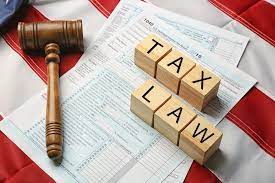If you’ve missed an IRS deadline and are being pursued by the IRS for delinquent taxes, you may be wondering how to fight the charges. If you ignore your debt, you risk receiving penalties and interest, and the IRS may take aggressive collection measures, such as garnishing your wages or placing a tax lien on your personal property, said a tax lawyer Missouri. But there are many ways to defend yourself against these actions. By knowing your rights, you can fight back and get your delinquent taxes lowered.
First, consider your situation. If you are in the position of being sued for delinquent taxes, you need to consult with an attorney. There are several types of legal defenses for tax evasion, including: a failure to pay taxes on time. Even if you have a simple mistake, you can file an amended return. An amended return will be much less expensive than a tax evasion fine. But if you’re under IRS investigation, you can rest assured that the government will aggressively pursue its claim for the money it believes it’s owed. A lawyer who specializes in tax law can help you make this process easier and get your debt reduced.
Lastly, you can use your delinquent taxpayers defenses to minimize the amount of your debt. For example, if you own a small business with annual revenue of $300,000 or more, the IRS can check your social to determine whether you are delinquent. If you are under this category, you owe approximately $75,000 to $150,000 in back taxes, which means that you should seek legal counsel immediately.
Ultimately, your best bet is to hire a tax debt resolution specialist. A tax debt specialist can help you file and reduce your risk of delinquency. By working with a tax debt resolution specialist, you can lower your risk of delinquency by ensuring that you’ve accurately accounted for your tax liabilities. The best tax defense is one that is effective and is tailored specifically to your unique situation.
 When the IRS finds a delinquent taxpayer’s unpaid taxes, it will investigate the case. The IRS uses a team of experienced and aggressive experts to pursue delinquent taxpayers. These specialists review financial records and use a variety of tools to collect unpaid taxes. Oftentimes, you’ll be confronted by an officer in your home or at your place of business. In some cases, they may summon DMV records and third party records, and garnish wages or other assets.
When the IRS finds a delinquent taxpayer’s unpaid taxes, it will investigate the case. The IRS uses a team of experienced and aggressive experts to pursue delinquent taxpayers. These specialists review financial records and use a variety of tools to collect unpaid taxes. Oftentimes, you’ll be confronted by an officer in your home or at your place of business. In some cases, they may summon DMV records and third party records, and garnish wages or other assets.
If you’ve filed a delinquent information return, you’ll probably need to attach a reasonable cause statement, if applicable. The Revenue Officer will then evaluate the statement and assess penalties. The evidence you provide will determine whether or not you’re entitled to a refund. This type of taxpayer defense is very valuable and you may be able to reduce your debt and avoid a tax audit.